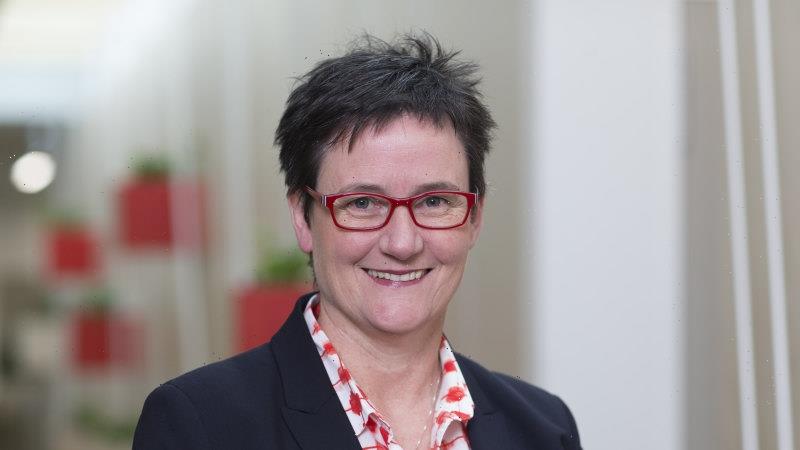Teachers and principals in state schools will begin industrial action on Monday with a partial ban on answering Education Department emails and attending meetings, and a boycott of one of the Andrews government’s key education improvement projects.
Australian Education Union Victorian branch president Meredith Peace said the bans were just the first shot in the union’s campaign for better pay and lighter workloads.
Australian Education Union Victorian president Meredith Peace says industrial action is designed to disrupt departmental operations.
“We’ll continue to escalate the campaign if that is what is required over the remaining part of the year and into next year,” she said.
The list of protected actions the union could take includes strikes, but Ms Peace said school staff were unwilling to disadvantage students as they progressively return to face-to-face learning in term four.
“We’re very conscious of the context we’re in, in terms of students returning in the coming weeks, and we’re alive to the issue of not wanting to impact on our students.”
But she did not rule out future strike action if the government did not put forward “a fair and reasonable offer” in its negotiations over a new enterprise bargaining agreement.
The union’s log of claims includes a 21 per cent pay rise over three years plus 16.5 per cent superannuation, as well as significant cuts to face-to-face teaching hours and smaller class sizes.
The first phase of industrial action is targeted at the Education Department and the Andrews government.
Ms Peace said it was designed to disrupt departmental operations and highlight the “excessive workload” associated with activities such as responding to emails and attending meetings.
Staff have been warned that the department could dock their pay for taking part in partial work bans.
The action includes a one-hour ban on attending meetings each week and on responding to emails from the department, unless they relate to student welfare, year 11 and 12 assessments or health and safety.
School staff will also stop work on one of the government’s key projects, called FISO, or the Framework for Improving School Outcomes.
A department spokesperson said: “We’ll continue to negotiate in good faith to reach an agreement for our hard-working school staff.”
Victorian government school teachers have not walked off the job since a series of statewide strikes in 2013, during acrimonious negotiations with the then Napthine government.
The Morning Edition newsletter is our guide to the day’s most important and interesting stories, analysis and insights. Sign up here.
Most Viewed in National
From our partners
Source: Read Full Article

